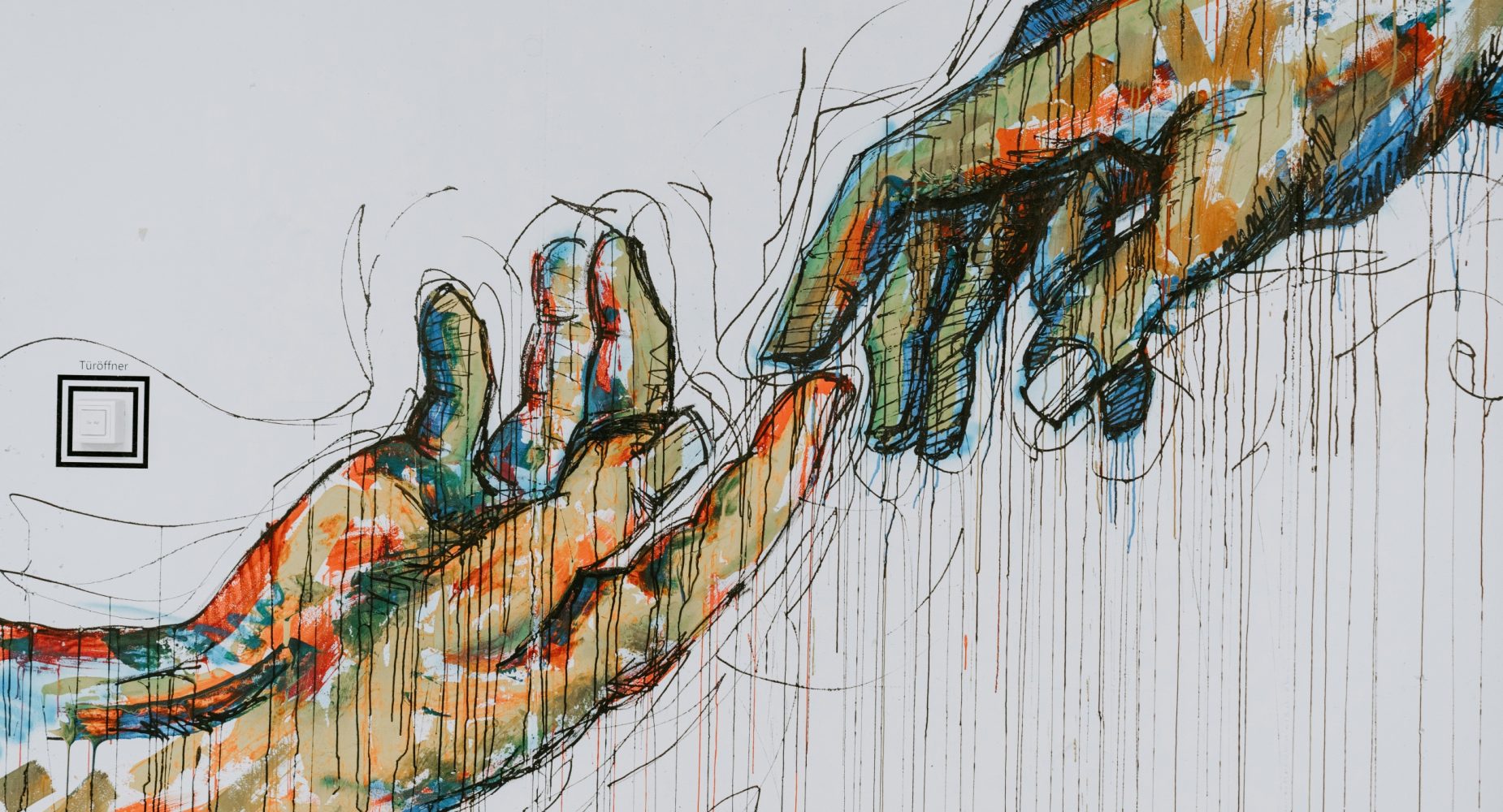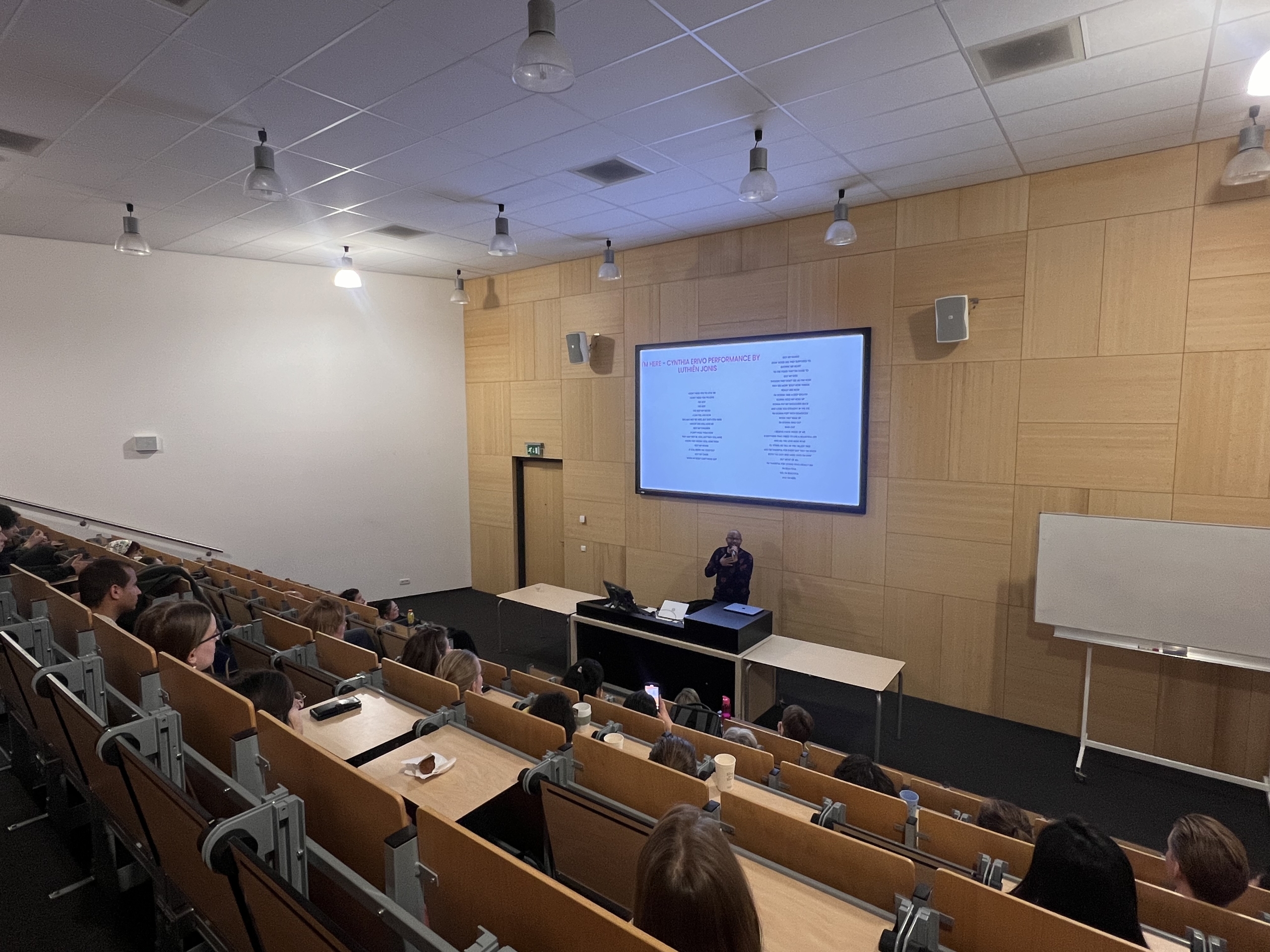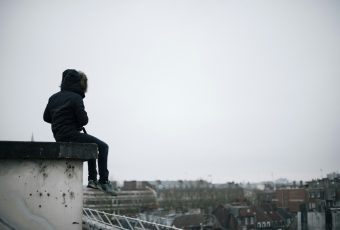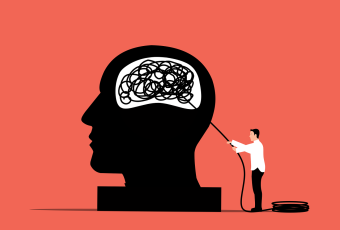
Melody of Change: poems about racism and discrimination (ENG/NL)
It was a small gathering, but a powerful one: Melody of Change, an event initiated by the HAN Diversity Learning Community, aims to raise awareness about racism and discrimination. How? By reading poetry and sharing stories. “Without judgement.”
“Yes, but”: a response many people receive after sharing their deeply personal experiences with racism and/or discrimination. “It’s frustrating”, one of the students sighs. “Why is listening so hard? Why does everything have to be countered?”
It’s one of the reasons Melody of Change is set up the way it is: no hard facts, no dry and cut examples, no statistics or rational arguments. Although they can serve their purpose and are helpful in many debates, this is all about raw, real, honest and often painful stories of those who suffered the consequences of racism and discrimination. They simultaneously declare their pride, their victory in overcoming adversities and hardships and their fight for more equality.
Punch in the gut
One poem after another, written and/or read by the students of the HAN Diversity Learning Community, gives an insight, a glimpse, into what it is like to be excluded, to be made to believe you are less, not worthy, don’t belong or deserve what you’ve been dealt. Sometimes it’s a cry for help, sometimes a sad realisation and sometimes a hard punch in the gut.
Like one of the poems written by Juthi, Bits and Pieces, in which they describe coming to the Netherlands, to the HAN, from the Caribbean:
Excitement filled me as studies began,
Dutch lessons learned, I felt I had a plan.
But the classroom’s door revealed a stark sight,
The only Caribbean face, in a sea of white.
I brushed it off, determined to thrive,
Yet a lecturer’s doubt made me feel less alive.
Was it my skin that caused her to doubt?
Questions lingered, shadows cast about.
But amidst these trials, a light emerged bright,
Connections formed, dispelling the night.
Communities like Han Huntu, a welcoming embrace,
Caribbean kinship, finding comfort in this space
It shows the struggle, but also the resilience. Many of the performances, including a beautifully sung ‘I’m Here’ (Cynthia Erivo) by Luthiën Jonis, an international student at the HAN, show the many layers and complexities of racism and discrimination. Though it mostly boils down to one thing: to ‘simply’ be able to be who you are, for everyone to be equal, to stop the unfair and painful systems that are in place in our society. But also at the HAN, a university that is inclusive in theory, but still needs a lot of practice and change.

Building bridges
Those systems: how do we break them down? The attendees discussed the urgency to educate people on what racism and discrimination is and how to do different. To strive for equality and embrace our differences. To create equal chances for everybody, no matter the colour of their skin, their origin, their gender, sexuality, mental health, and so on. Or, as the slogan of the event states: to break barriers and build bridges. To have those painful conversations, in all honestly, with the intend to listen, learn and try to make actual change happen. Not to try and counter everything, make excuses or justifications or simply say “I’m sorry” and leave it at that.
“Empathy is the first step”, one of the attendees says. “No”, reacts someone else. “Empathy is beautiful and necessary, yes, but it’s also easy. Solidarity is the first step.” They go on to say that it is one thing to feel sorry for someone and comfort them. It’s another to stand next to them or even in front of them when the attacks are coming, when action is needed, when it is crucial to look at yourself and say: what comforts and privileges am I willing to give up to truly make a change? “That is how we can transform.”
Melody of Change also gave the stage to poet Amanda Midence, who works at Radboud University. She not only shared her experiences as a Honduran immigrant in The Netherlands, but also as someone who struggled with an eating disorder.
it saddens me to think that younger me
thought showing ribs was everything
that she went to sleep and counted calories,
instead of sheep
(excerpt from the poem ‘You are not alone’)
Safe environment
Fernanda Salvato, co-leader of HAN Diversity Learning Community and Student Support & Immigration Officer, is happy with the first edition of Melody of Change, during the International Week Against Racism 2024. The event marks her debut, shedding light on an important agenda: racism and discrimination. “The idea behind this event is to provide a safe environment for HAN students to voice their experiences and emotions through music, poetry, and art”, Fernando explains. “It’s also a significant opportunity to foster connections between HAN students and staff through listening, sharing, and debating.”
NEDERLANDSE VERSIE:
Melody of Change: gedichten over racisme en discriminatie
Het was een kleine, maar krachtige bijeenkomst: Melody of Change, georganiseerd door de HAN Diversity Learning Community, is bedoeld om bewustwording te creëren van racisme en discriminatie. Hoe? Door gedichten voor te dragen en verhalen te delen. “Zonder oordeel.”
“Ja, maar”: het is een veelgehoorde reactie als antwoord op een gedeelde ervaring over racisme en/of discriminatie. “Het is frustrerend”, aldus één van de aanwezige studenten. “Waarom is luisteren zo moeilijk? Waarom moet alles altijd meteen weerlegd worden?”
Het is één van de redenen waarom Melody of Change is opgezet zoals het is: geen harde feiten of droge voorbeelden, geen statistieken of rationele argumenten. Hoewel deze allemaal een doel dienen en zeker van pas komen, is dit evenement puur om rauwe, echte, eerlijke en vaak pijnlijke verhalen te delen van zij die de gevolgen van racisme en discriminatie ondervinden. Terwijl zij tegelijkertijd ook hun trots uiten, het overwinnen van moeilijke momenten vieren en voorvechters zijn in de strijd voor gelijkheid.
Klap in het gezicht
Het ene gedicht na het andere, geschreven en/of voorgelezen door de studenten van de HAN Diversity Learning Community, geeft een kijkje in hoe het is om buitengesloten te worden, om aangepraat te worden dat je minder bent, er niet bij hoort, verdient wat je overkomt. Soms is het een roep om hulp, soms een verdrietig besef, soms een harde klap in het gezicht.
Zoals één van de gedichten geschreven door Juthi, getiteld Bits and Pieces (Stukjes en Beetjes), waarin beschreven wordt hoe het voor Juthi was om naar Nederland te verhuizen en te studeren aan de HAN:
Opwinding vervult me, mijn studie begint
Nederlandse lessen, ik had een plan, zin
Maar de deur van het klaslokaal onthulde een grimmig beeld
Het enige Caribische gezicht in een zee van wit
Ik wuifde het weg, vastbesloten om te floreren
Maar de twijfel van een docent liet me minder vibreren
Was het mijn huid die haar deed twijfelen?
Vragen bleven hangen, schaduwen groeiden
Maar temidden van al deze beproevingen, doemde een licht op
Verbinding gemaakt, de nacht opgelost
Een gemeenschap als HAN Huntu, een welkome omhelzing
Caribische kameraadschap, troost in leegte
Het laat de worsteling zien, maar ook de veerkracht. Veel van de voordrachten, waaronder een prachtig gezongen ‘I’m Here’ (Cynthia Erivo) door de internationale HAN-student Luthiën Jonis, laten de gelaagdheid en complexiteiten zien van racisme en discriminatie. Uiteindelijk draait het hierom: simpelweg mogen zijn wie je bent, om gelijkheid, om de pijnlijke en oneerlijke systemen te stoppen die ongelijkheid in stand houden in de maatschappij. Maar deze ook te adresseren en stoppen op de HAN, een school die in theorie inclusief is, maar waar nog altijd veel te winnen valt en ruimte is voor verandering.
Bruggen bouwen
Die systemen, hoe breken we die af? De aanwezigen discussiëren erover. Over de noodzaak van informeren en leren. Om een open blik te houden, te streven naar gelijkwaardigheid. Om verschillen te omarmen, respecteren, ongeacht de kleur van de huid, de afkomst, gender, seksualiteit, mentale welzijn, enzovoorts. Of, zoals de slogan van dit event stelt: barrières doorbreken en bruggen bouwen. Het hebben van pijnlijke gesprekken, in alle eerlijk- en openheid, met de intentie om te luisteren, leren en proberen daadwerkelijk veranderingen door te voeren. Niet om altijd maar meteen een reactie te geven, een weerwoord, een tegenwerping. Om het goed te praten, of om alleen excuses aan te bieden en het daarbij te laten.
“Empathie, medeleven, is de eerste stap”, aldus één van de aanwezigen. “Nee”, reageert iemand hierop. “Medeleven is mooi en zeker noodzakelijk, maar ook makkelijk. Solidariteit, dát is de eerste stap.” Diegene gaat verder door te stellen dat het één ding is om mee te leven met iemand, maar een ander om voor hen óp te komen. Door naast ze te staan, soms zelf vóór hen, om ze te beschermen. En dat het noodzakelijk is om bij jezelf te rade te gaan: ben ik bereid om mijn comfort en privileges op te geven om daadwerkelijk voor verandering te zorgen? “Dat is hoe we écht kunnen transformeren.”
Melody of Change gaf eveneens het podium aan dichter Amanda Midence. Zij werkt voor de Radboud Universiteit. Ze deelde niet alleen haar ervaringen als immigrant vanuit Honduras, maar ook als iemand die worstelde met een eetstoornis.
Het doet me verdriet om te denken aan mijn jongere ik
die dacht dat haar ribben zichtbaar moesten zijn
die naar bed ging en calorieën telde
in plaats van schaapjes
(stukje uit het gedicht You are not alone – Je bent niet alleen)
Veilige omgeving
Fernanda Salvato, werkzaam bij HAN Diversity Learning Community en Student Support & Immigration Officer, is blij met de eerste editie van Melody of Change, vooral tijdens de Week Tegen Racisme 2024. Het evenement vormt haar debuut en schijnt noodzakelijk licht op de belangrijke thema’s racisme en discriminatie. “Het idee is dat we met Melody of Change een veilige omgeving creëren voor HAN-studenten om hun stem, emoties en ervaringen te laten horen door middel van muziek, gedichten en kunst. Het is tevens een belangrijke mogelijkheid om verbindingen te maken op de HAN tussen studenten en medewerkers. Door naar elkaar te luisteren, verhalen te delen en te debatteren, kunnen we verandering in gang zetten.”



Alle reacties (0)